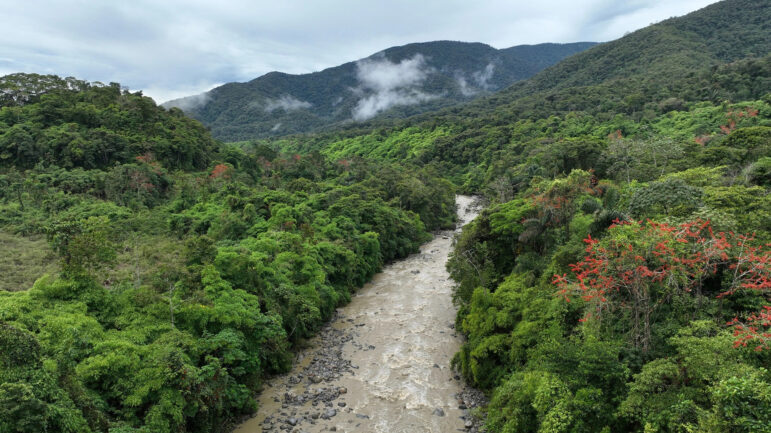
A river flows through the Amazon Rainforest. Image by Rhett A. Butler/Mongabay.
The Amazon Rainforest is approaching a dangerous tipping point, where vast swaths could transition from lush rainforest to a drier, savanna-like ecosystem. In 2022, several studies added further data to suggest that the tipping may be imminent for parts of the Amazon, including an analysis by the Monitoring of the Andean Amazon Project (MAAP), which concluded that the eastern third of the Amazon may have already passed a critical threshold for forest loss. That region is significant because it drives moisture from the Atlantic to the central Amazon.
Throughout 2022, Mongabay covered the urgent need to halt deforestation and the strategies deployed to protect and restore the Amazon Rainforest. This reporting included information on the approaches used by Indigenous peoples, community organizations, the private sector and governments to protect and restore tropical forests in the region.
Impacts
This undertaking notably improved transparency through steadfast monitoring of natural resource industries driving Amazon destruction and yielded several real-world impacts due to Mongabay’s reporting. At a high level, our sustained and credible coverage of the Amazon Rainforest positions the organization as a trusted expert source for understanding the region.
For example, the Council on Foreign Relations cited Mongabay founder Rhett Butler in its backgrounder on the consequences of Amazon deforestation. Similarly, The Washington Post invited Mongabay Latam’s program manager, María Isabel Torres, and managing editor, Alexa Vélez, to write a Spanish-language commentary, “Are we doing enough to avoid an environmental disaster?” as part of the media outlet’s coverage of COP27, which links to Mongabay Latam’s Amazon Rainforest coverage in Bolivia, Colombia, Ecuador and Peru.
Besides these general examples of our effectiveness, Mongabay’s independent journalism also led to more specific impacts.
2022 Brazil Elections
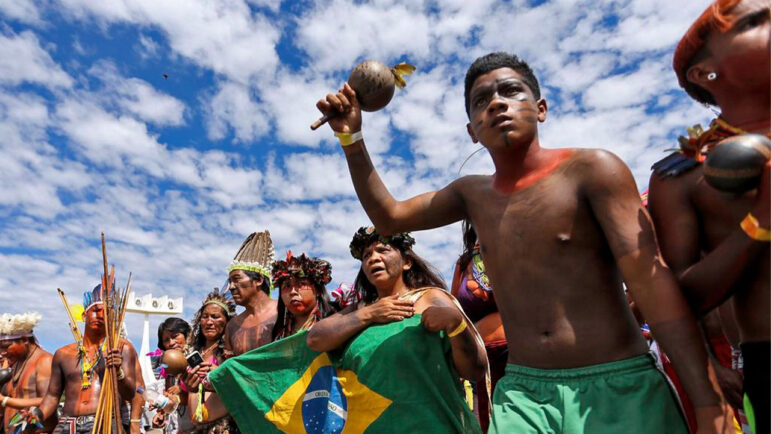
The Indigenous Campaign project started at the Terra Livre camp, a mass mobilization event in Brasília advocating for Indigenous rights. Image courtesy of Marcelo Camargo/Agência Brasil.
Last year, Mongabay reached new heights by focusing on Brazil’s presidential election to recognize the importance of political outcomes in achieving environmental goals. In one of the most critical developments for tropical rainforests in 2022, former two-term president Luiz Inácio Lula da Silva narrowly defeated the incumbent, Jair Bolsonaro.
Lula has pledged to restore the infrastructure that underpins Amazon conservation efforts, including creating, for the first time in Brazil’s history, a Ministry of Indigenous Peoples. He also established an alliance with Indonesia and the Democratic Republic of Congo — the two biggest tropical rainforest countries after Brazil — to rally support, and funds, for rainforest protection.
In the run-up to the election and afterward, Mongabay covered the environmental context of the Brazilian election and interviewed various politicians for a global audience. Notably, Mongabay published an in-depth interview with Marina Silva, the new environment minister, that made the front page of UOL, one of Brazil’s leading news outlets.
Holding oil companies accountable
Mongabay’s reporting helped to reveal the hidden details of the natural resource industries to identify what lands are being exploited, who are the investors in the firms involved in deforestation, and where these commodities ultimately flow. One of 2022’s most ambitious reports was about the overlap between oil fields and protected areas in the Andean Amazon region. Mongabay Latam’s “Stained by oil: A history of spills, impunity and abuses in the Amazon of Peru, Colombia, Ecuador and Bolivia” series shone a light on two key issues: sanctions and fines against oil companies operating in the Amazon, and the overlap of oil fields with protected areas and Indigenous territories.
Following the publication of the series, Mongabay was invited to present the investigation’s findings at an event attended by the U.N. special rapporteur on toxic wastes and human rights, Marcos Orellana, and the special rapporteur on economic, social, cultural and environmental rights, Soledad García. Also, José Gregorio Díaz Mirabal, representative of the Coordinator of Indigenous Organizations of the Amazon Basin (COICA), spoke publicly about the investigation and shared some of the figures at a conference during the first COP of the Escazú Agreement on environmental issues. Vélez, who oversaw the investigative series, was interviewed by the Global Investigative Journalism Network (GIJN) and invited by Oxfam Perú to discuss strategies for overcoming the challenges of obtaining public government information.
Environmental crime and drug trafficking in the Amazon
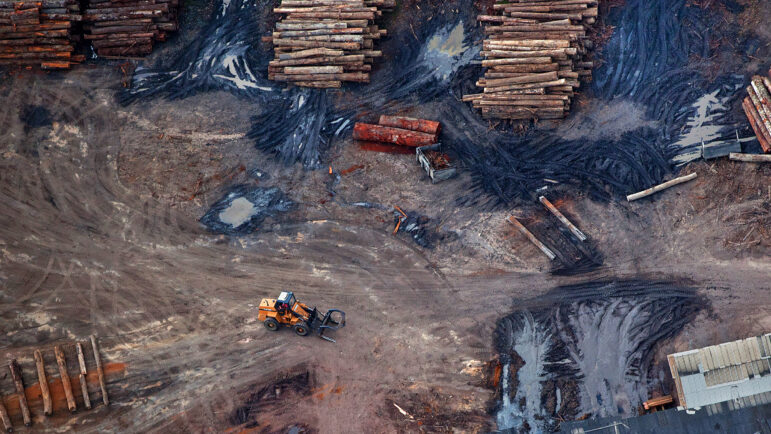
Criminal organizations operating in the Amazon engage in activities ranging from illegal logging to drug trafficking. They often threaten and attack environmentalists, Indigenous peoples and enforcement agents who try to stop them. Mongabay consistently raised awareness about the intertwined relationship between environmental crime and “complex national and transnational criminal chains.”
In July 2022, a Brazilian police investigation revealed that a gang used cryptocurrency to conceal the origins of gold from illegal mining across seven states in the north of Brazil in an operation that devastated an area the size of 212 football fields. The investigators seized and blocked assets valued at around 2 billion reais ($373 million), including from the owners of a mining company identified in previous reporting by Mongabay and The Intercept Brasil published in October 2021.
Indusparquet corruption uncovered by investigation
Furthermore, a yearlong investigation by Mongabay and Earthsight uncovered new evidence of corrupt deals and illegal practices used by Brazil’s largest wood flooring exporter, Indusparquet, and its suppliers. The company was charged in two corruption lawsuits in Brazil over using public officials to gain access to timber supplies. Our investigation found Jose Antonio Baggio, Indusparquet’s co-founder, used a local official to secure bracatinga, a tree species native to the Atlantic Forest — the most threatened Brazilian biome.
We also found indications that the U.S.client was Floor & Decor, the nation’s largest flooring retail chain, which was previously involved in illegal timber scandals with Indusparquet. LL Flooring, fined for breaching the Lacey Act in 2013 over its illegal timber exports, is also an Indusparquet client.
While this revelation has yet to yield an official response, the report drew important conclusions regarding the actions needed by governments in Brazil and key markets like the U.S. and EU to address the underlying drivers of illegal deforestation. Earthsight authored a commentary published by Mongabay that summarized the key lessons from the report for U.S. policy on timber and agricultural commodity imports, and mailed it directly to an extensive list of key stakeholders, including U.S. authorities.
Mennonites driving deforestation in Peru
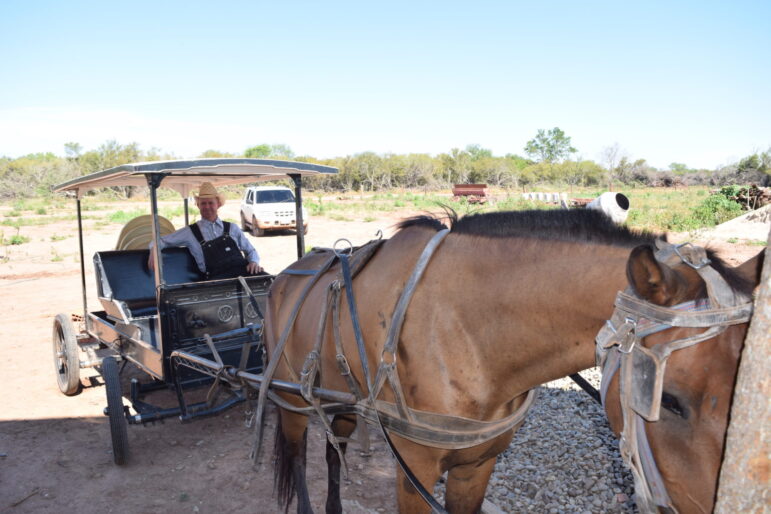
Peter Martins is the leader of the Cuarirenda Mennonite colony. Image by Iván Paredes Tamayo.
Clearing by Mennonites is the new leading cause of deforestation in Peru. Mongabay used satellite data from Global Forest Watch deforestation alerts from Paraguay, Mexico, Bolivia, Peru and Colombia to reveal a disturbing pattern of illegal deforestation perpetrated by colonies of this ultra-conservative Christian denomination. The series showed the colonies are clearing forests without authorization, obtaining land titles through trafficking, and threatening the way of life of local and Indigenous communities.
Spurring actions to halt deforestation often takes time to materialize, but Mongabay is aware this article has already resonated with policymakers and law enforcement audiences. After the publication of “Paraguay: Mennonite colonies advance with their crops over forests and indigenous territories,” Paraguay’s National Commission for the Defense of Natural Resources (Conaderna) contacted the reporter to share that it would discuss the issue in a commission session in 2023. In Peru, the Ministry of Environment’s public prosecutor, Julio Guzmán, spoke publicly to highlight the report’s importance and noted the upcoming publication of a court order to halt all activity by the Mennonite colony of Padre Márquez in Ucayali.
“It is very important to address this issue from a regional perspective. This is not only a Peruvian problem,” Guzmán said in a Twitter Space organized by Mongabay Latam. Mongabay also contributed to the Mennonite series with a video for the series Chasing Deforestation to accompany the multilingual effort.
Palm oil investigation leads to judicial action for Indigenous peoples
Mongabay’s reporting has also helped Indigenous peoples and local communities obtain judicial action. A follow-up impact related to a Mongabay investigation on palm oil in Brazil published in 2021 demonstrates how government action often takes time to develop.
On Oct. 4, 2022, the Federal Circuit Court for the First Region in Brasília approved a forensic investigation into pesticide contamination and the socioenvironmental and health impacts in the Turé-Mariquita Indigenous Territory and the production zone of the country’s largest palm oil producer, Biopalma, in the Tomé-Açú region.
Prosecutors in Brazil say Mongabay’s reporting was vital to obtaining a court decision. Felício Pontes Júnior, the lead prosecutor in the case, told Mongabay features writer Karla Mendes that “The Federal Public Ministry used your report. And it had an influence on the decision. Many judges seek information before judging, and your investigation was the most in-depth information that existed on the subject.”
Mongabay Latam’s contribution to anti-drug trafficking strategy
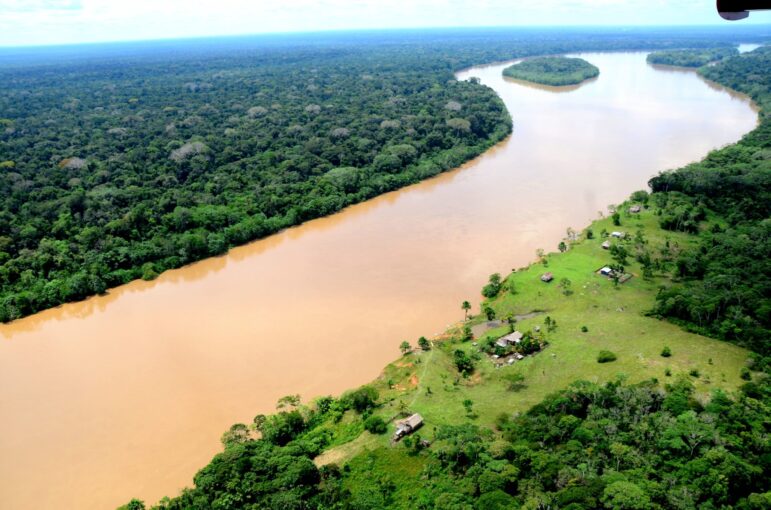
A community on the banks of the Putumayo River. Image courtesy of the Andes-Amazon program of the Field Museum of Natural History in Chicago.
Meanwhile, Mongabay Latam dutifully reported the unchecked advance of deforestation that is driving biodiversity loss and violence against Indigenous communities across the Peruvian Amazon. For example, Indigenous territories in Peru continue to be besieged by drug traffickers. Articles on the native community of Puerto Nuevo and the threats in Santa Rosillo de Yanayacu in San Martín exemplify this persistent issue.
Following the report “Loreto: drug traffickers, ex-FARC and illegal miners threaten the communities of the Putumayo River in Peru,” both the Peruvian environmental police and the special environmental prosecutor for the region of Loreto requested images that Mongabay Latam took on the Putumayo River of mining dredges in operation. They also requested additional access to sources who could provide details, in order to initiate an investigation in the area. Mongabay Latam followed through with the requests, and our reporting is now being used to establish a strategy to address the problem in the area.
Continuing to report on the Amazon rainforest
Mongabay’s journalism has significantly impacted Amazon Rainforest conservation by raising awareness, holding stakeholders accountable, and driving change. Mongabay will continue to report on threats to this region and provide objective information to inform decision-makers.
Support independent environmental journalism
If you are interested in helping shed light on conservation stories such as this one, there are two excellent ways you can do so with Mongabay. First, consider making a donation, which directly helps us continue to produce high-impact journalism from nature’s frontline. Second, subscribe to Mongabay’s newsletter to get the latest environmental news delivered right to your inbox.
About Mongabay
Mongabay is a nonprofit environmental science and conservation news platform focused on providing cutting-edge independent journalism from nature’s frontline. We pride ourselves on producing reporting that has substantial, tangible impacts around the world.